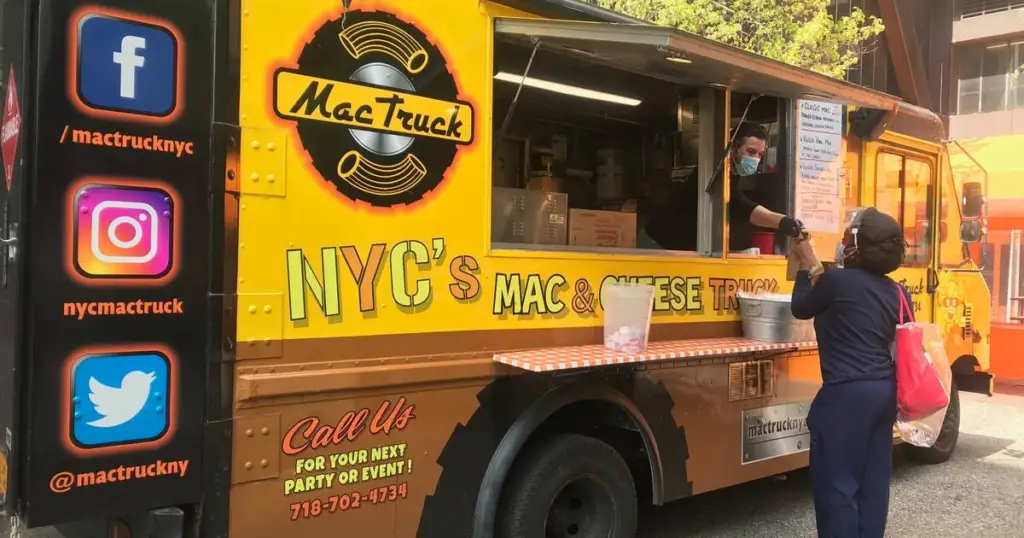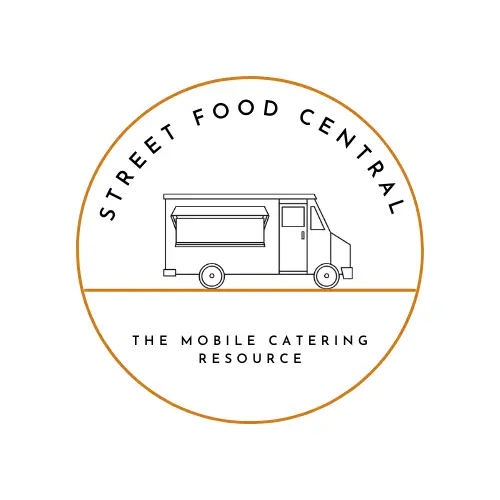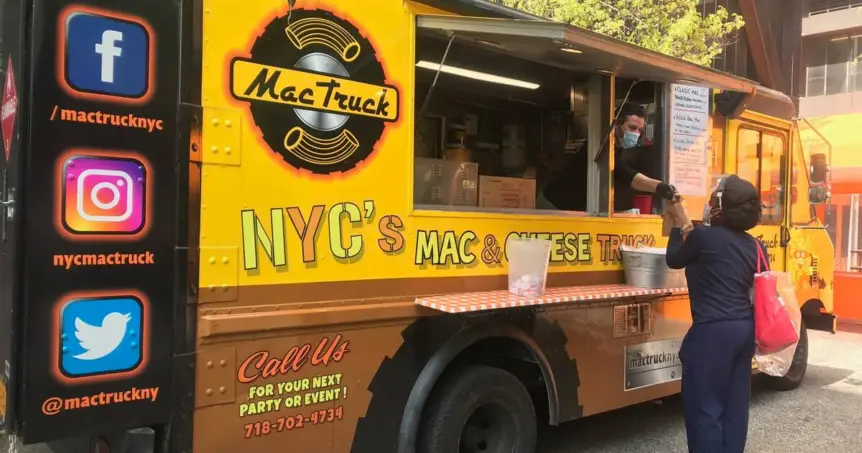See all the permits, licenses, and insurance needed to operate a food truck in New York

The best part about starting a food truck business is taking an idea and turning it into a tangible asset, from creating a menu to choosing the design of your mobile unit.
In contrast, the worst part for many is navigating all the types of licenses, permits, certificates, and insurance needed to operate. It can be especially overwhelming when you have to navigate federal, state, and local regulations at the same time, each with its own requirements.
So if you have landed here you may be wondering what permits do you need for a food truck in New York?
To operate a food truck in New York you need a Certificate of Authority from the Department of Taxation and Finance, a Mobile Food Vendor License, a Mobile Food Vendors permit, and a Commisionary Letter of Agreement which is issued by the Department of Health and Mental Hygiene (DOHMH)
There are also a number of other things you need to do such as choosing a business structure, registering with the IRS, checking you have the correct driving license, and getting adequate commercial and business insurance.
In this article, I will take you through the process, step by step, of getting all the food truck licenses, permits, and certificates you need to operate in New York.
Contents:
- Step 1: Business Structure
- Step 2: Taxes & the IRS
- Step 3: Mobile Food Vendor License
- Step 4: Mobile food vendors’ permits
- Step 5. Food truck inspection
- Step 6: Driving License
- Step 7. Insurance
- Summary of food truck permit and license costs
- Key takeaways
Step 1: Business Structure
The first step is choosing a name for your company and checking that the name you want isn’t also taken. You can do this here at the Department of State Divisions for Corporations
Then you need to choose how you want to structure your food truck business, which will enable you to get a business license. There are a number of ways you can do this, each with its own requirements.
A Sole Proprietor is the simplest form of a business entity where you can operate under your own name or register with your local clerk’s office for an “Assumed Name Certificate” (DBA) which is a certificate that lets you trade under an assumed company name. You need to register with the county clerk in the state where you are located.
Other business structures exist such as corporations, Limited Liability Companies, Limited Partnerships, or Limited Liability Partnerships which are a little more complex to set up. If you are thinking about going with any of these options then you will need to register your food truck business with the New York Department of State.
Helpful resources:
Cost:
- Assumed Name Certificate – $25
- Limited Company registration fee – $100 – $125
Related articles:
- What License Do You Need For A Food Truck In Florida?
- What Licenses Do You Need For A Food Truck In Texas?
- What Licenses Are Needed To Start A Food Truck In California?
- What License Do You Need For A Food Truck In Ohio?
Step 2: Taxes and the IRS
Federal level
Once you have chosen a structure you need to register your food truck business at the federal level with the IRS to pay the right taxes.
If you don’t intend to employ any staff and you want to operate your food truck as a sole proprietor or independent contractor then you can register with the IRS as self-employed and use your social security number for social security and medicare tax purposes.
If on the other hand, there are more people involved in your food truck business and/or you intend to employ staff then you will need to apply to the IRS for an “Employer’s Identification Number” (EIN number). This is a number assigned to every business so it can easily be identified by the IRS for taxation, which you will also need to open a business bank account.
State Level
At the state level, you will need to register with the county you are located in if you are a sole proprietor to pay tax and if structured as a limited company corporation the Department of State. If you employ staff you will also need to register with the New York Department of Labour.
In addition, you will also need to register as a New York State tax vendor from the NYS Department of Taxation and Finance and obtain a “Certificate of Author”.
Cost:
- EIN – Free
- NYS Certificate of Authority – $225
Helpful resources:
Step 3: Mobile Food Vendor License
Next up you will need a Mobile Food Vendor License by taking a food protection course. This is a course that trains individuals in food safety practices and is required as part of the New York City health code.
The NYC Health Code requires that there be at least one supervisor certified in food protection (commonly known as a Certificated Food Manager) on-site at any time.
Information on how to apply can be found on the Department of Health and Mental Hygiene (DOHMH) Website
Cost:
- Food Protection Course – $53
Helpful resources:
Related articles:
- How Many Sinks Do You Need In A Food Truck?
- How Does A Food Truck Get Power?
- How Much Do Food Trucks Pay To Park At Events?
Step 4: Mobile food vendors’ permit
The next step is to apply for a Mobile Food Vendors Permit from the Department of Health and Mental Hygiene (DOHMH) which is a permit, under NYC Establishment Rules that allow you to sell food from a mobile unit such as a food truck, food trailer or cart.
These permits are split into six types:
- City-wide permits – Allows food trucks to trade on public streets in every borough year-round
- Borough-specific permits – Allows food trucks to trade in the Bronx, Queens or Staten Island year-round
- Seasonal temporary permits – Allows food trucks to trade from April 1 to October 31
- Specialized Vendor Permit – Allows food trucks to trade on the perimeter of NYC parks year-round
- Restricted Area Mobile Food Vending Permits – Allows food trucks to operate on private property in a commercially zoned area.
- NYC Green Cart Permits – For mobile units selling fresh fruit and veg in certain parts of NYC,
It’s worth noting that there is a limited number of seasonal temporary, city-wide, Green Cart, and borough-specific permits. However, there is no waiting list or limit on the number of Restricted Area Mobile Food Vending Permits which should make it easier if you can find private land to operate on.
An application for a mobile food vendor permit can be made here.
In addition to a vendor’s permit, you may also need to apply separately for a Commisionary Letter of Agreement. This is an application all mobile units have to submit stating they have a fixed location facility away from the food truck which is used for servicing operations like cleaning, filling water tanks, and disposal of wastewater.
Cost:
- Restricted Area Mobile Food Vending Permit – $75-200
- Commisionary Letter of Agreement – $free
Helpful resources:
Step 5: Driving License
Aside from the licenses and permits, you need to operate in New York it is worth considering what vehicle driving licenses you may need for a food truck.
According to the food truck builders M&R Speciality Trailers and Trucks, you should be able to drive a food truck with a Standard Class D driver’s license if your food truck weighs less than 26001 pounds. It’s worth noting that most food trucks have a typical weight of 1200-1600 pounds so this should suffice.
However, if your food truck exceeds a gross weight limit of 26001 pounds then you will need something called a CDL license. This is a commercial driver’s license used for driving large and heavy trucks.
If you have any questions it’s worth contacting New York DMV
Cost:
- Standard Class E Driver’s license and registration – $91 – $107
- CDL Licence fee- $164 – $180
Helpful resources:
Related articles:
Step 7. Insurance
To make sure you are in good legal standing and have protection for your food truck business Insurance is another important part of operating.
To drive a food truck in New York you will need commercial insurance to cover you on the road and business liability insurance to protect you against lawsuits and if you intend to employ staff it’s a legal requirement to have workers’ compensation and disability benefits insurance.
There is also additional insurance coverage, which is not needed by law in New York but you may want to consider getting one for added protection.
Types of insurance for a food truck include:
- Liability insurance over $1 million – includes cover for your own property in addition to third parties
- Employee Insurance – Proetcs your employees if there is a hazard at work
- Workers Compensation Insurance – Protects you from costly claims made by employees as a result of an injury at work
Cost:
- Wide-ranging as it is dependent on claims history and the type of coverage.
Helpful resources:
Summary of food truck permit and license costs
- EIN – Free
- NYS Certificate of Authority – $225
- Assumed Name Certificate (Business license) – $25
- Limited Company (Business license) – $100 – 125
- Mobile Food Vendor License = $53
- Mobile Food Vendors Permit – $75 – 200
- Commisionary Letter of Agreement – Free
- Standard Class E Driver’s license and registration – $91 – $107
- CDL Licence – $164 – $180
- Insurance – Varied depending on claims history and business operation
- Total – At least $750
Related articles:
Key takeaway
Getting all the licenses, permits, and certificates to operate a food truck can be a bit overwhelming when you have to navigate federal, state, and local regulations. This is especially true when states and local authorities each have their own rules around what you need to do to sell food to the public from a mobile unit.
However, once you get the first couple of steps right like choosing your business structure and registering with the IRS to pay taxes the rest can be easier, especially when you have a roadmap of the steps you need to take and in which order.
So here’s a summary of the licenses, permits, and certificates you need to operate a food truck in New York:
- Step 1: Choose a business structure & get a business license
- Step 2: Register with the IRS at the federal and state level to pay the right amount of tax
- Step 3: Get your Mobile Food Vendors License from the Department of Health and Mental Hygiene
- Step 4: Get your Mobile Food Vendors permit from the Department of Health and Mental Hygiene
- Step 5: Check your driving License
- Step 6. Get Commercial Insurance
Gavin D is the founder of Street Food Central and Tru Foo Juice Bar Co. and has worked in the mobile catering industry for over 7 years.

